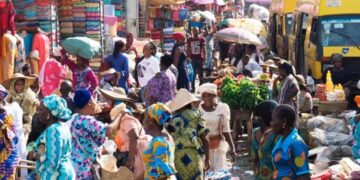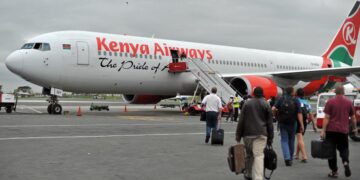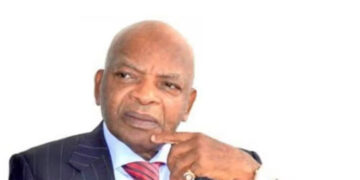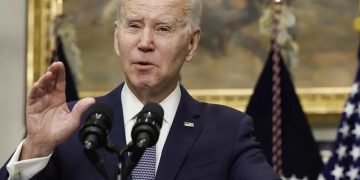In this episode of Mandates & Megaphones, brought to you by Standard Bank, Jeremy Maggs speaks with Professor Rajneesh Narula, director of the Dunning Africa Centre at Henley Business School, about Africa’s precarious yet pivotal moment on the world stage.
As the Brics bloc expands, the G20 comes to Johannesburg, and Western influence wanes, the continent faces urgent choices that could define its future for generations to come.
Can Africa leverage shifting global power to secure sovereignty, drive self-reliance, and forge an African-led development path – or will it risk falling into a new cycle of dependency? From trade vulnerability to the battle for geopolitical agency, this is a conversation about strategy, survival, and shaping the future.
The end of the aid era and the need for long-term thinking
Narula believes Africa has reached a point of no return. The old model of relying on Western guilt and development aid is over. Former colonial powers no longer see perpetual aid as viable, while global political shifts, accelerated by leaders like Donald Trump, have dismantled the expectation of automatic support.
Instead, he calls for a decisive pivot towards long-term, self-sustaining strategies that reject short-term handouts.
“Aid as a mechanism is dead… Nobody’s out there giving out free money, and nobody ever gave us free money, to be honest. Africa has to move beyond short-term handouts and think long-term. There’s no other solution.”
Integration as the only route to global influence
For Narula, Africa’s bargaining power on the world stage is undermined by its fragmentation into small, economically fragile states. Regional integration, whether through SADC [Southern African Development Community], the East African Community, or the African Continental Free Trade Area, is not a diplomatic luxury but an economic necessity. Acting as a united market would increase foreign investment appeal, strengthen negotiating leverage, and unlock comparative advantages between nations.
“At the end of the day, it’s size that matters. Individually, countries in Africa are too small to move the dial… The only choice we have is to integrate our markets and go to the table as one unit instead of 50 different countries.”
South Africa’s ‘big brother’ responsibility
Narula notes that, historically, regional economic integration often requires a dominant player to take the lead. In Africa, he argues, that mantle falls to South Africa. With the continent looking towards the G20 summit, he urges South Africa to first focus on building smaller, functional blocs – for example, deepening integration within SADC – before expanding continent-wide. Success in smaller clusters, he says, will create a model others will want to join.
“Everyone across the continent looks to South Africa to lead the way… Start with a smaller group like SADC, integrate markets, create frictionless trade, and then say to others: look, this works – join us.”
Partnerships with the private sector: Trust, but verify
The professor warns against treating the private sector as an adversary. Public-private partnerships, he argues, are essential for development, particularly given the state’s limited financial, technical, and managerial resources. However, this cooperation must be disciplined. The state’s role is to regulate, set equitable terms, and ensure benefits are shared fairly.
“The private sector isn’t your enemy… The state must monitor how we cut the pie up and make sure you get your money’s worth. Trust, but verify, that’s the secret of development.”
From raw materials to manufacturing: The employment imperative
Narula is unequivocal; without a manufacturing base, Africa has no sustainable future. Relying solely on mineral and agricultural exports perpetuates vulnerability. Manufacturing offers the scale of job creation needed for political stability and economic growth, but will only succeed if countries leverage each other’s comparative advantages.
“Without a manufacturing base, there is no future for us… Manufacturing will not happen in one country; it has to happen across a group of countries. Africa needs the employment benefits that come from manufacturing.”
The stakes ahead
As South Africa prepares to host the G20 and deepen its role within Brics, Narula frames this as a defining test of African leadership. The continent’s choice, he says, is clear: integrate strategically, engage the private sector effectively, and shift towards high-value industries or risk slipping into a new form of geopolitical capture, this time shaped by 21st-century powers rather than 20th-century colonisers.
The Mandates & Megaphones podcast will be published weekly on Mondays until the summit concludes in late November. Listen on Spotify, iTunes, and other popular platforms or download the Moneyweb app to stay informed – anytime, anywhere.



















![[Kenya] Digital credit provider Tala disbursed Sh240 billion in loans in eight years 19 [Kenya] Digital credit provider Tala disbursed Sh240 billion in loans in eight years](https://theafricanbusiness.com/wp-content/uploads/2023/02/TALA-APP-360x180.jpg)













